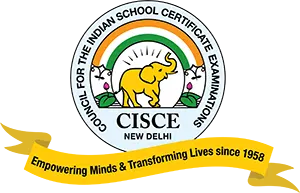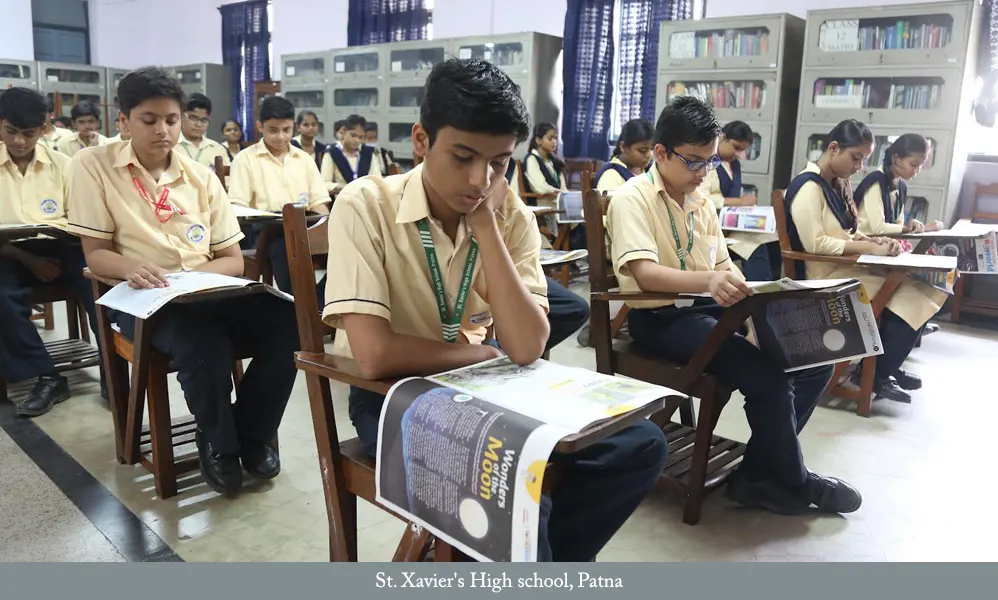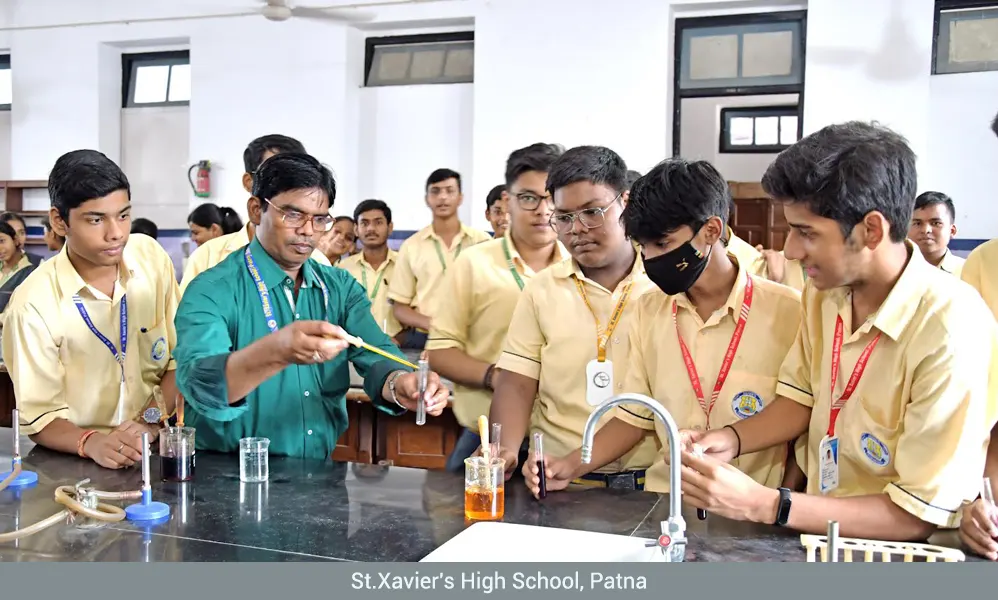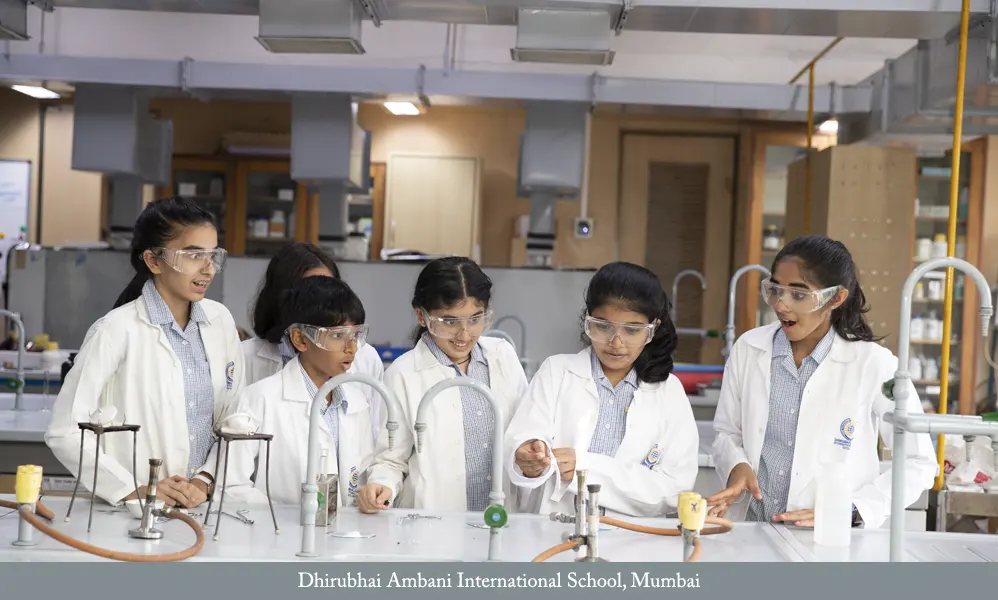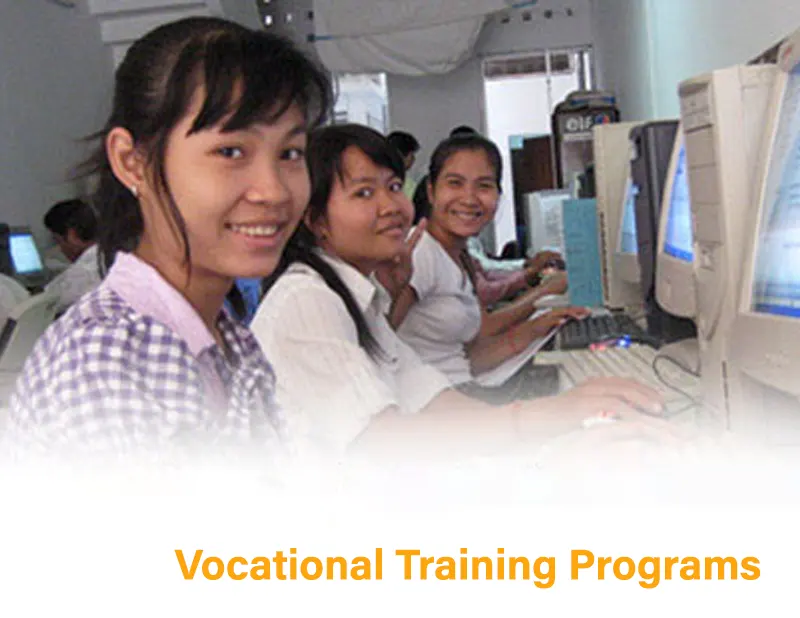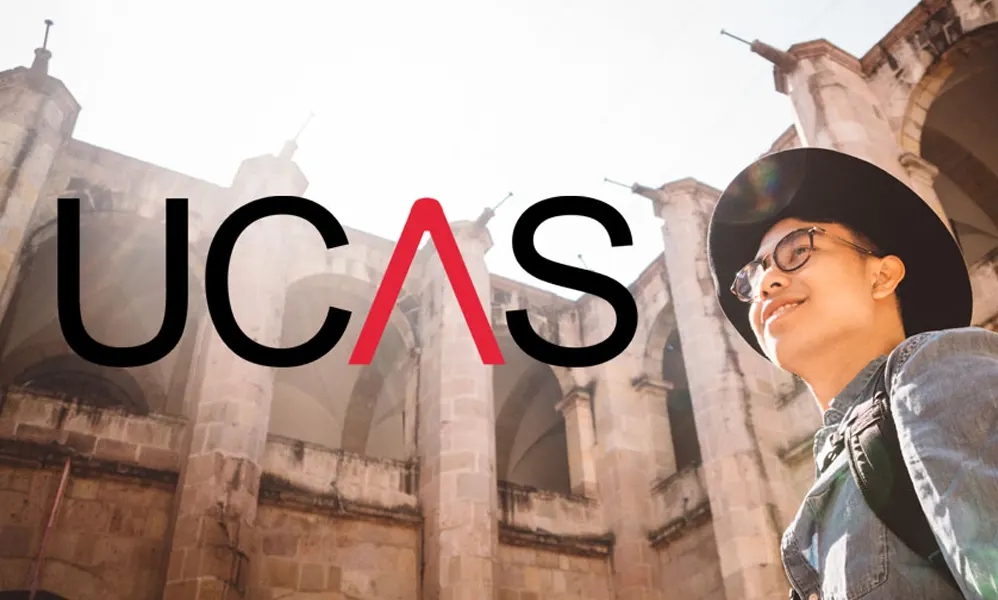The Council for the Indian School Certificate Examinations conducts three examinations, namely, the Indian Certificate of Secondary Education (ICSE –Class X); The Indian School Certificate (ISC – ClassXII), and the Certificate of Vocational Education (CVE – Year 12). The subject choices and syllabuses prescribed for these examinations are varied and aimed at nurturing the unique gifts of individual pupils
The Delhi Education Act,1973, passed by Parliament, recognized the Council for the Indian School Certificate Examinations as a body conducting public examinations in Chapter 1 under Definitions, section 2 c(s). The Council for the Indian School Certificate Examinations (CISCE) conducts two regular secondary and higher secondary examinations, namely, the Indian Certificate of Secondary Examination (ICSE) and the Indian School Certificate Examination (ISC), in addition to the Certificate of Vocational Education (CVE -Year 12). All the examinations are recognized by the various boards, State Governments, and the Government of India.
The Government of India (vide its letter no. 1-69/98 – Sch.3, MHRD, Department of Secondary & Higher Education) has recognized the contribution of the CISCE in assisting in imparting quality education to the nation through its five nominations from the CISCE for the National Awards for Teachers every year. This is the Indian Government’s recognition of CISCE’s longstanding and unwavering commitment to quality school education.
ICSE Examination
The Indian Certificate of Secondary Education Examination (ICSE) has been framed and designed as an Examination in general education through the medium of English. The ICSE Examination ensures a general education without any diversification of studies as all candidates are required to enter for six subjects, English (Compulsory) and be assessed by the school in Socially Useful Productive Work and Community Service (Compulsory).
The Indian Certificate of Secondary Education Examination is a school examination, and the standard of the examination pre-supposes a school course of twelve years duration (Nursery to Class X). At the ICSE level, students have the option to explore opportunities in choice of subjects that encourage them to enhance their performance according to their aptitude and skill.
Benefits of ICSE
- The ICSE syllabi has a detailed and comprehensive syllabus with due emphasis on English as the medium of instruction, giving it an advantage that helps students clear entrance examinations like IELTS, TOEFL and SAT etc.
- ICSE offers a wide choice of alternative subjects and includes a detailed study of all subjects that is offered at the secondary level of examination.
- Students learn to solve different type of questions like direct, application-based, analytical etc which results in the students understanding the concepts in a comprehensive manner.
- The ICSE curriculum encourages students, the complete freedom in having access to a wide range of learning material and resources for a better understanding of concepts.
- The detailed study of every subject gives an in-depth knowledge of the content and fosters qualities of diligence and perseverance amongst the students.
- The ICSE syllabus is constantly revised according to the continuously evolving global changes in educational trends.
- The focus of imparting quality education as per the curriculum lies in the intellectual, physical, and linguistic growth of children.
- The Assessment and evaluation methods examine and assess a student’s inherent abilities and aptitude with an encouragement to an original flow of thoughts and ideas.
Important Downloads
Previous Years Question Papers
Specimen Question Papers
LABORATORY REQUIREMENTS – CLASSES VIII – X
Analysis of Pupil Performance
Internal Assessment – An Integral Component Of ICSE
ISC Examination
The Indian School Certificate Examination (ISC) has been framed and designed as an Examination through the medium of English, after a two-year course of studies beyond the Indian Certificate of Secondary Education Examination (Class X) or its equivalent. All candidates eligible to appear will be required to enter for English (Compulsory) with three, four or five elective subjects and be assessed by the school in Socially Useful Productive Work and Community Service (Compulsory).
The CISCE offers a range of subjects from which students can select subjects of their choice, across the boundaries of Humanities, Commerce and Science, in keeping with their aptitude and ability.
As a prerequisite for undergraduate and competitive examinations the ISC has a sound and dynamic curriculum that prepares its candidates in a comprehensive manner that has yielded promising results through successful performances by candidates at various levels of competition at Higher Education / Professional levels of entrance Examination be it Engineering, Medical, Management or admission to Foreign Universities.
Benefits of ISC
- The ISC curriculum emphasises on the development of effective communication skills in English and other languages.
- The vast practical experiences built into the curriculum enable students to become active problem-solvers, in addition to gaining academic excellence.
- ISC offers a wide range of subjects for students to select from, based on their aptitude and abilities.
- The ISC examination caters to the needs of all students, where the assessment is based on an array of simple, difficult, analytical, and critical thinking questions.
- The curriculum is framed to ensure students are equipped for tackling all forms of competitive entrance examinations at the National & Global arena.
- It focuses on soft skills development which helps in handling new and complex situations successfully in life.
- ISC provides opportunities for holistic education.
Important Downloads
Regulations and Syllabuses
Previous Years Question Papers
Specimen Question Papers
Laboratory Requirements – Classes XI – XII
Analysis of Pupil Performance
CVE Examination
The Certificate of Vocational Education Examination (CVE – 12) has been created as an examination, in accordance with the recommendations of the Ministry of Human Resource Development (MHRD) through the Joint Council of Vocational Education (JCVE) established under the National Policy of Education 1986. This examination can be taken by candidates after a two-year course of studies beyond the Indian Certificate of Secondary Education (Year 10) examination or its equivalent, through the medium of English.
The C.V.E. course is intended to prepare candidates for specific vocations. Private candidates are not permitted to appear for these examinations.
C.V.E (Year 12) > Regulations
Guidelines
Regulations
C.V.E (Year 12) > Syllabus
Civil Engineering Technician
Graphic Design Technician
Hospitality Management
Mechanical Engineering Technician
Print Design Technician
Telecommunication Engineering Technician
Special Mention
UCAS noting on the ISC Examination:
The National Admissions and Accreditation agency in the United Kingdom – UCAS (Universities and College Admission Services) has recognized the ISC at par with the Higher School qualification of the University of Scotland.
One of the first few boards in India to disseminate results Online:
The CISCE website provided the results of the ICSE and ISC March 1999, examinations. One of the first few boards in India. The provision showcased CISCE as a pacesetting organization world-wide.
